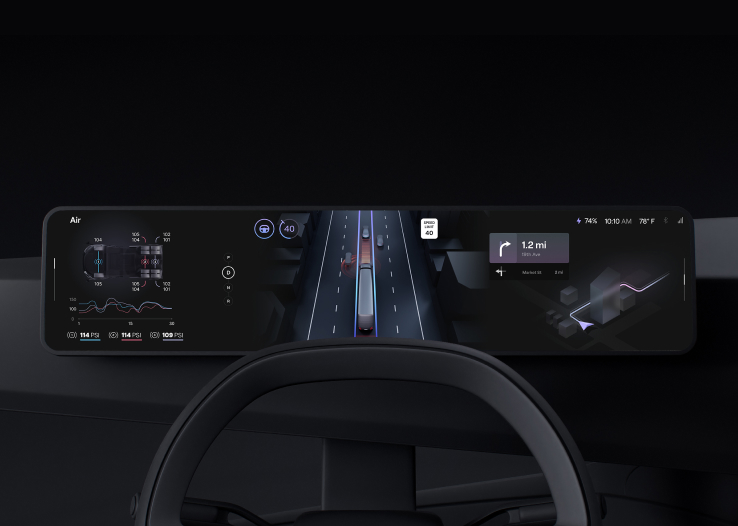The Beijing Auto Show 2024 was a spectacle of innovation, featuring nearly 1,000 exhibits. This year's event was pivotal, not only for the Chinese automotive industry but also for the global automotive industry. The surge in new energy vehicles (NEVs) and groundbreaking innovations signal a shift that will impact the US and EU markets. Are you prepared for the competition coming your way?
Discover how China's advancements are reshaping the automotive landscape.
Understanding the global impact of China’s automotive industry
Competitive pricing pressure and market share
Chinese automakers are blending high-end features with affordability, setting a new standard for luxury vehicles. They are becoming more accessible, raising competition across all vehicle segments. Brands are enhancing the customer experience with digital innovations like virtual showrooms and real-time diagnostics, alongside exclusive in-person spaces such as NIO Life Cafés. It sets a new industry standard, making premium features and seamless experiences available to a broader audience.
This could force US and EU manufacturers to rethink their pricing strategies and product offerings, potentially leading to lower profit margins and a need for cost innovation. However, the competition exists within the Chinese market itself. Numerous Chinese automakers are vying for market share, which intensifies the competition and accelerates the development and release cycles of new models.
Connected experiences
The automotive industry is transforming with the rise of software-defined vehicles (SDVs), driven by Chinese brands that harmonize digital and physical experiences, marking significant advancements in the automotive industry in China. Automakers now leverage mobile technology to maintain customer connections post-sale through sophisticated apps offering virtual showrooms, diagnostics, maintenance reminders, exclusive content and personalized services. This ongoing digital engagement fosters customer loyalty and enhances user lifestyles, pushing OEMs to invest in technology and customer experience, raising R&D costs and shifting marketing strategies.
Demand for personalization
In an era where personal technology is nearly an extension of the self, consumers expect their vehicles to seamlessly integrate into their existing digital ecosystems. This includes smartphones, smart home devices and now cars.
The emphasis on vehicle customization in China is likely to create pressure on other established automakers to offer more versatile and personalized options. For OEMs, the challenge lies not only in building their operating systems, rather than relying on or having to rely on third-party ones such as Android or IOS. It also involves ensuring their proprietary systems in the future can integrate effortlessly with other consumer technologies in the future. Such integration is critical to enhance convenience, usability and most importantly a frictionless user experience. Achieving this will require significant changes in production processes and supply chain management, as well as increased collaboration with aftermarket suppliers.
- The automotive industry is abuzz with the trend of affordable aftermarket customization. Automakers are increasingly offering basic models designed for easy upgrades, allowing customers to personalize their vehicles with ease. Accompanied by user-friendly apps, these upgrades can be selected and booked for installation seamlessly, making customization accessible and convenient for everyone.
- In-car wellness is becoming the new standard, with most automotive brands now offering comprehensive relaxation experiences for both drivers and passengers. These features include massaging seats, ambient lighting, climate control, and even aromatherapy, transforming the car interior into a sanctuary of comfort and relaxation. This trend highlights the growing importance of enhancing the overall driving experience beyond just transportation.
- Crafting products that cater to unique consumer preferences, needs and use cases is a top priority in the automotive industry. This year, there is a refined focus on addressing the needs of families, offering features such as spacious interiors, advanced safety systems and entertainment options tailored for all age groups. This focus ensures that vehicles are not only functional but also enhance the lifestyle and comfort of every family member.

Localization of international brands
Global brands seeking success in China must adapt to local market needs while maintaining their brand authenticity. Large automotive companies with offices in China are now giving more design-making power to their local teams. This shift allows for faster, more relevant innovation that resonates with local consumer preferences. The growing trend of localization of the design of UX was evident at the Beijing Auto Show 2024, where international brands showcased infotainment systems tailored for Chinese users, integrating local content, apps, services, and cultural elements.
Conversely, Chinese brands expanding internationally must understand and adapt to the preferences and regulatory requirements of foreign markets. This involves thorough market research and developing localized strategies to ensure their products resonate with global consumers. As this trend continues, deeper localization efforts – ranging from product adaptation to strategic market integration – will be essential for brands to thrive in the competitive global automotive landscape.
Discover more about the latest automotive trends and learn how to turn insights into impactful strategies by diving into our comprehensive Beijing Auto Show 2024 report.
For a broader perspective, compare these findings with last year's highlights in our Auto Shanghai 2023 report and check out our trend report on car HMI in China.
Partner with Star: Innovation with impact
Innovation is imperative in today’s fast-paced automotive ecosystem. At Star, we understand the importance of forward-thinking through the rapid changes and emerging challenges that face the global automotive industry. With our deep passion and extensive experience across all critical touchpoints, let's work together to elevate digital products and services to the next level.
10Forward
Our recently launched future-gazing 10Forward report is designed to help you navigate tomorrow’s market and society. Looking forward and preparing for different futures is pivotal for business success, and in the automotive industry we are seeing critical shifts more than ever.







